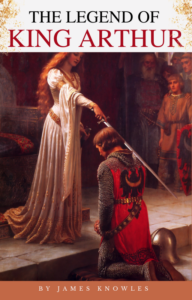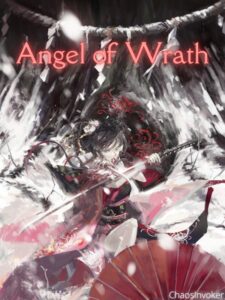When Buck earned sixteen hundred dollars in five minutes for John Thornton, he made it possible for his master to pay off certain debts and to journey with his partners into the East after a fabled lost mine, the history of which was as old as the history of the country. Many men had sought it; few had found it; and more than a few there were who had never returned from the quest. This lost mine was steeped in tragedy and shrouded in mystery. No one knew of the first man. The oldest tradition stopped before it got back to him. From the beginning there had been an ancient and ramshackle cabin. Dying men had sworn to it, and to the mine the site of which it marked, clinching their testimony with nuggets that were unlike any known grade of gold in the Northland.
But no living man had looted this treasure house, and the dead were dead; wherefore John Thornton and Pete and Hans, with Buck and half a dozen other dogs, faced into the East on an unknown trail to achieve where men and dogs as good as themselves had failed. They sledded seventy miles up the Yukon, swung to the left into the Stewart River, passed the Mayo and the McQuestion, and held on until the Stewart itself became a streamlet, threading the upstanding peaks which marked the backbone of the continent.
John Thornton asked little of man or nature. He was unafraid of the wild. With a handful of salt and a rifle he could plunge into the wilderness and fare wherever he pleased and as long as he pleased. Being in no haste, Indian fashion, he hunted his dinner in the course of the day’s travel; and if he failed to find it, like the Indian, he kept on travelling, secure in the knowledge that sooner or later he would come to it. So, on this great journey into the East, straight meat was the bill of fare, ammunition and tools principally made up the load on the sled, and the time-card was drawn upon the limitless future.
To Buck it was boundless delight, this hunting, fishing, and indefinite wandering through strange places. For weeks at a time they would hold on steadily, day after day; and for weeks upon end they would camp, here and there, the dogs loafing and the men burning holes through frozen muck and gravel and washing countless pans of dirt by the heat of the fire. Sometimes they went hungry, sometimes they feasted riotously, all according to the abundance of game and the fortune of hunting. Summer arrived, and dogs and men packed on their backs, rafted across blue mountain lakes, and descended or ascended unknown rivers in slender boats whipsawed from the standing forest.
The months came and went, and back and forth they twisted through the uncharted vastness, where no men were and yet where men had been if the Lost Cabin were true. They went across divides in summer blizzards, shivered under the midnight sun on naked mountains between the timber line and the eternal snows, dropped into summer valleys amid swarming gnats and flies, and in the shadows of glaciers picked strawberries and flowers as ripe and fair as any the Southland could boast. In the fall of the year they penetrated a weird lake country, sad and silent, where wildfowl had been, but where then there was no life nor sign of life—only the blowing of chill winds, the forming of ice in sheltered places, and the melancholy rippling of waves on lonely beaches.
And through another winter they wandered on the obliterated trails of men who had gone before. Once, they came upon a path blazed through the forest, an ancient path, and the Lost Cabin seemed very near. But the path began nowhere and ended nowhere, and it remained mystery, as the man who made it and the reason he made it remained mystery. Another time they chanced upon the time-graven wreckage of a hunting lodge, and amid the shreds of rotted blankets John Thornton found a long-barrelled flint-lock. He knew it for a Hudson Bay Company gun of the young days in the Northwest, when such a gun was worth its height in beaver skins packed flat, And that was all—no hint as to the man who in an early day had reared the lodge and left the gun among the blankets.
Spring came on once more, and at the end of all their wandering they found, not the Lost Cabin, but a shallow placer in a broad valley where the gold showed like yellow butter across the bottom of the washing-pan. They sought no farther. Each day they worked earned them thousands of dollars in clean dust and nuggets, and they worked every day. The gold was sacked in moose-hide bags, fifty pounds to the bag, and piled like so much firewood outside the spruce-bough lodge. Like giants they toiled, days flashing on the heels of days like dreams as they heaped the treasure up.
There was nothing for the dogs to do, save the hauling in of meat now and again that Thornton killed, and Buck spent long hours musing by the fire. The vision of the short-legged hairy man came to him more frequently, now that there was little work to be done; and often, blinking by the fire, Buck wandered with him in that other world which he remembered.
The salient thing of this other world seemed fear. When he watched the hairy man sleeping by the fire, head between his knees and hands clasped above, Buck saw that he slept restlessly, with many starts and awakenings, at which times he would peer fearfully into the darkness and fling more wood upon the fire. Did they walk by the beach of a sea, where the hairy man gathered shellfish and ate them as he gathered, it was with eyes that roved everywhere for hidden danger and with legs prepared to run like the wind at its first appearance. Through the forest they crept noiselessly, Buck at the hairy man’s heels; and they were alert and vigilant, the pair of them, ears twitching and moving and nostrils quivering, for the man heard and smelled as keenly as Buck. The hairy man could spring up into the trees and travel ahead as fast as on the ground, swinging by the arms from limb to limb, sometimes a dozen feet apart, letting go and catching, never falling, never missing his grip. In fact, he seemed as much at home among the trees as on the ground; and Buck had memories of nights of vigil spent beneath trees wherein the hairy man roosted, holding on tightly as he slept.
And closely akin to the visions of the hairy man was the call still sounding in the depths of the forest. It filled him with a great unrest and strange desires. It caused him to feel a vague, sweet gladness, and he was aware of wild yearnings and stirrings for he knew not what. Sometimes he pursued the call into the forest, looking for it as though it were a tangible thing, barking softly or defiantly, as the mood might dictate. He would thrust his nose into the cool wood moss, or into the black soil where long grasses grew, and snort with joy at the fat earth smells; or he would crouch for hours, as if in concealment, behind fungus-covered trunks of fallen trees, wide-eyed and wide-eared to all that moved and sounded about him. It might be, lying thus, that he hoped to surprise this call he could not understand. But he did not know why he did these various things. He was impelled to do them, and did not reason about them at all.
Irresistible impulses seized him. He would be lying in camp, dozing lazily in the heat of the day, when suddenly his head would lift and his ears cock up, intent and listening, and he would spring to his feet and dash away, and on and on, for hours, through the forest aisles and across the open spaces where the niggerheads bunched. He loved to run down dry watercourses, and to creep and spy upon the bird life in the woods. For a day at a time he would lie in the underbrush where he could watch the partridges drumming and strutting up and down. But especially he loved to run in the dim twilight of the summer midnights, listening to the subdued and sleepy murmurs of the forest, reading signs and sounds as man may read a book, and seeking for the mysterious something that called—called, waking or sleeping, at all times, for him to come.
One night he sprang from sleep with a start, eager-eyed, nostrils quivering and scenting, his mane bristling in recurrent waves. From the forest came the call (or one note of it, for the call was many noted), distinct and definite as never before,—a long-drawn howl, like, yet unlike, any noise made by husky dog. And he knew it, in the old familiar way, as a sound heard before. He sprang through the sleeping camp and in swift silence dashed through the woods. As he drew closer to the cry he went more slowly, with caution in every movement, till he came to an open place among the trees, and looking out saw, erect on haunches, with nose pointed to the sky, a long, lean, timber wolf.
He had made no noise, yet it ceased from its howling and tried to sense his presence. Buck stalked into the open, half crouching, body gathered compactly together, tail straight and stiff, feet falling with unwonted care. Every movement advertised commingled threatening and overture of friendliness. It was the menacing truce that marks the meeting of wild beasts that prey. But the wolf fled at sight of him. He followed, with wild leapings, in a frenzy to overtake. He ran him into a blind channel, in the bed of the creek where a timber jam barred the way. The wolf whirled about, pivoting on his hind legs after the fashion of Joe and of all cornered husky dogs, snarling and bristling, clipping his teeth together in a continuous and rapid succession of snaps.
Buck did not attack, but circled him about and hedged him in with friendly advances. The wolf was suspicious and afraid; for Buck made three of him in weight, while his head barely reached Buck’s shoulder. Watching his chance, he darted away, and the chase was resumed. Time and again he was cornered, and the thing repeated, though he was in poor condition, or Buck could not so easily have overtaken him. He would run till Buck’s head was even with his flank, when he would whirl around at bay, only to dash away again at the first opportunity.
But in the end Buck’s pertinacity was rewarded; for the wolf, finding that no harm was intended, finally sniffed noses with him. Then they became friendly, and played about in the nervous, half-coy way with which fierce beasts belie their fierceness. After some time of this the wolf started off at an easy lope in a manner that plainly showed he was going somewhere. He made it clear to Buck that he was to come, and they ran side by side through the sombre twilight, straight up the creek bed, into the gorge from which it issued, and across the bleak divide where it took its rise.
On the opposite slope of the watershed they came down into a level country where were great stretches of forest and many streams, and through these great stretches they ran steadily, hour after hour, the sun rising higher and the day growing warmer. Buck was wildly glad. He knew he was at last answering the call, running by the side of his wood brother toward the place from where the call surely came. Old memories were coming upon him fast, and he was stirring to them as of old he stirred to the realities of which they were the shadows. He had done this thing before, somewhere in that other and dimly remembered world, and he was doing it again, now, running free in the open, the unpacked earth underfoot, the wide sky overhead.
They stopped by a running stream to drink, and, stopping, Buck remembered John Thornton. He sat down. The wolf started on toward the place from where the call surely came, then returned to him, sniffing noses and making actions as though to encourage him. But Buck turned about and started slowly on the back track. For the better part of an hour the wild brother ran by his side, whining softly. Then he sat down, pointed his nose upward, and howled. It was a mournful howl, and as Buck held steadily on his way he heard it grow faint and fainter until it was lost in the distance.
John Thornton was eating dinner when Buck dashed into camp and sprang upon him in a frenzy of affection, overturning him, scrambling upon him, licking his face, biting his hand—“playing the general tom-fool,” as John Thornton characterized it, the while he shook Buck back and forth and cursed him lovingly.
For two days and nights Buck never left camp, never let Thornton out of his sight. He followed him about at his work, watched him while he ate, saw him into his blankets at night and out of them in the morning. But after two days the call in the forest began to sound more imperiously than ever. Buck’s restlessness came back on him, and he was haunted by recollections of the wild brother, and of the smiling land beyond the divide and the run side by side through the wide forest stretches. Once again he took to wandering in the woods, but the wild brother came no more; and though he listened through long vigils, the mournful howl was never raised.
He began to sleep out at night, staying away from camp for days at a time; and once he crossed the divide at the head of the creek and went down into the land of timber and streams. There he wandered for a week, seeking vainly for fresh sign of the wild brother, killing his meat as he travelled and travelling with the long, easy lope that seems never to tire. He fished for salmon in a broad stream that emptied somewhere into the sea, and by this stream he killed a large black bear, blinded by the mosquitoes while likewise fishing, and raging through the forest helpless and terrible. Even so, it was a hard fight, and it aroused the last latent remnants of Buck’s ferocity. And two days later, when he returned to his kill and found a dozen wolverenes quarrelling over the spoil, he scattered them like chaff; and those that fled left two behind who would quarrel no more.
The blood-longing became stronger than ever before. He was a killer, a thing that preyed, living on the things that lived, unaided, alone, by virtue of his own strength and prowess, surviving triumphantly in a hostile environment where only the strong survived. Because of all this he became possessed of a great pride in himself, which communicated itself like a contagion to his physical being. It advertised itself in all his movements, was apparent in the play of every muscle, spoke plainly as speech in the way he carried himself, and made his glorious furry coat if anything more glorious. But for the stray brown on his muzzle and above his eyes, and for the splash of white hair that ran midmost down his chest, he might well have been mistaken for a gigantic wolf, larger than the largest of the breed. From his St. Bernard father he had inherited size and weight, but it was his shepherd mother who had given shape to that size and weight. His muzzle was the long wolf muzzle, save that it was larger than the muzzle of any wolf; and his head, somewhat broader, was the wolf head on a massive scale.
His cunning was wolf cunning, and wild cunning; his intelligence, shepherd intelligence and St. Bernard intelligence; and all this, plus an experience gained in the fiercest of schools, made him as formidable a creature as any that roamed the wild. A carnivorous animal living on a straight meat diet, he was in full flower, at the high tide of his life, overspilling with vigor and virility. When Thornton passed a caressing hand along his back, a snapping and crackling followed the hand, each hair discharging its pent magnetism at the contact. Every part, brain and body, nerve tissue and fibre, was keyed to the most exquisite pitch; and between all the parts there was a perfect equilibrium or adjustment. To sights and sounds and events which required action, he responded with lightning-like rapidity. Quickly as a husky dog could leap to defend from attack or to attack, he could leap twice as quickly. He saw the movement, or heard sound, and responded in less time than another dog required to compass the mere seeing or hearing. He perceived and determined and responded in the same instant. In point of fact the three actions of perceiving, determining, and responding were sequential; but so infinitesimal were the intervals of time between them that they appeared simultaneous. His muscles were surcharged with vitality, and snapped into play sharply, like steel springs. Life streamed through him in splendid flood, glad and rampant, until it seemed that it would burst him asunder in sheer ecstasy and pour forth generously over the world.
“Never was there such a dog,” said John Thornton one day, as the partners watched Buck marching out of camp.
“When he was made, the mould was broke,” said Pete.
“Py jingo! I t’ink so mineself,” Hans affirmed.







The Dream of the Red Chamber
Completed